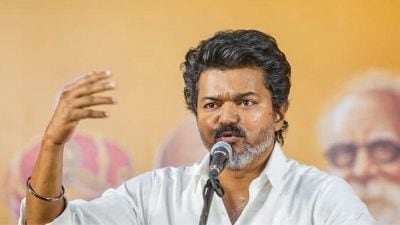Century of reason
When knowledge is extended, the world becomes sincere," wrote Confucius centuries ago. Its sincerity may be in considerable doubt, bu...

When knowledge is extended, the world becomes sincere," wrote Confucius centuries ago. Its sincerity may be in considerable doubt, but the world that bids goodbye today to the twentieth century can indulge in a pat on the back for the wealth of information its members are now privy to.
In a century that began with knowledge still the preserve of a charmed circle, social and technological changes have dramatically democratised the dissemination of news, facts, opinions, narratives. That we are now teetering towards the other extreme is evident from the reams of paper expended on a fin de siecle malady which would surely have bemused our ancestors back in 1899: information overload. Books, that commodity which we perpetually fear will become redundant before we know it, are selling like never before. Journals are proliferating like never before. The television age is giving billions a non-stop arm-chair expedition of far-off places and local trivia. And the World Wide Web, fast expanding to earn the status of a parallel universe, has conclusively obliterated distance and puts out fresh megadoses of weighty archives and irrelevant chitchat each day.
So what lies ahead? A populace well-versed with the literary and sociocultural drifts of the times? A century shaped by ever widening clusters of experts, a century characterised by rationality? If only it were that simple. The benefits and abundant dividends delivered by this new knowledge-based global village cannot be denied. The dissemination of information is driven by faster, cheaper, better technology. And not only is this sprawling knowledge base accessible to far-flung Netizens armed with a PC and a mouse, it renders ineffective any attempt to monopolise knowledge, to ensure influence by offering selective arc- hives. Yet, while the jury is still out, indications are that most of us may simply be sampling a storehouse of information as we pass each day juggling the television remotes, mouse, ever fatter newspapers and the latest tomes ordered from an online bookstore. But with an ever increasing list of gadgetry and snippets competing for our attention, we may not really be absorbing much. Besides,with web pages appearing at a rate that defies prompt assessment, some of what is being absorbed is likely to be misinformation.
The information revolution may also be coming full circle. If at the start of the century bespectacled scientists on the verge of announcing new discoveries worried whether they could muster a roomfull to hear them out, now their first instinct would be to contact lawyers to secure patents, to prevent new insights from entering the public domain. This is where the challenge lies, for information overload is probably just a temporary hitch.
Perhaps the first patent recorded in history should be compulsory reading in schools and colleges. In 1421 the city of Florence awarded one Filippo Brunelleschi a patent for an innovative way of loading ships, by hoping that it "shall be brought to light, to be profit of both to said Filippo and to our whole country and others; and that said Filippo may be animated more fervently to even higher pursuits". Or else the queue for patents and copyrights on genes, basmati rice and soundbites will just keep growing.








- 01
- 02
- 03
- 04
- 05























